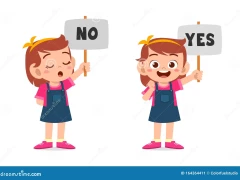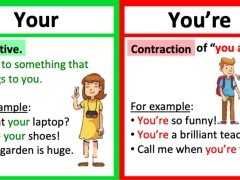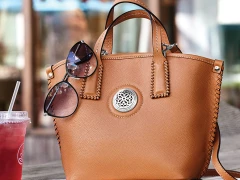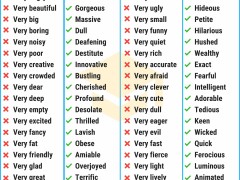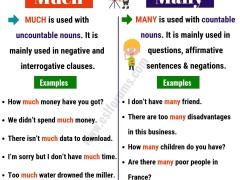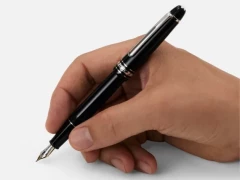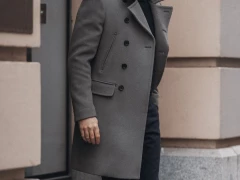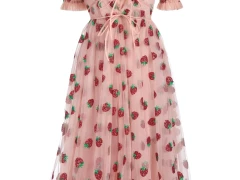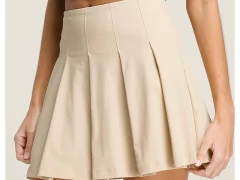excuse [iksˈkjuːz] v. 原谅
【词】来自拉丁语excusare
【扩】forgive 原谅 overlook 宽恕,宽容
【搭】excuse sb. for sth. 因……而原谅某人
* * *
A: Excuse me, is this seat taken?
B: Yes, it's for my friend.
A:对不起,请问这座位有人吗?
B:是的,这是我朋友的座位。
* * *
me [miː] pron. 我(宾格)
yes [jes] adv. 是的
【反】no 不是的
【搭】say yes 同意
* * *
A: Are you satisfied with the party?
B: Yes, we had a wonderful time tonight.
A:你对这次的聚会满意吗?
B:是的,我们今晚过得很愉快。
* * *
is [iz] v. be动词现在时第三人称单数
this [ðis] pron. 这
【搭】this time 这次 like this 像这样
* * *
A: Whose kite is this?
B: It is Lucy's.
A:这个风筝是谁的啊?
B:是露西的。
* * *
your [jɔː] possessive adjective. 你的,你们的
【派】yours 你的,你们的
* * *
A: Your skirt is so nice.
B: Thank you for your compliment.
A:你的短裙真好看。
B:谢谢你的夸奖。
* * *
handbag [ˈhændbæɡ] n. (女用)手提包
pardon [ˈpɑːdn] int. 原谅,请再说一遍
【搭】beg one's pardon 请求某人的原谅
* * *
A: Pardon me for not finishing it on time.
B: Can you tell me what happened?
A:请原谅我未能按时完成。
B:能告诉我发生什么事情了吗?
* * *
it [it] pron. 它
thank you [ˈθæŋk-juː] 感谢你(们)
very much [ˈveri-mʌtʃ] 非常地
Lesson 2 Is this your…?这是你的……吗?
pen [pen] n. 钢笔
【扩】penfriend 笔友
【搭】ball pen 圆珠笔 pen name 笔名
* * *
A: Your new pen is so beautiful.
B: Thanks for saying so. It's my birthday present.
A:你的新钢笔真漂亮。
B:谢谢你这么说,这是我的生日礼物。
* * *
pencil [ˈpensl] n. 铅笔
【搭】pencil box 文具盒
* * *
A: The pencil is so short.
B: You can get a new one in that drawer.
A:这支铅笔太短了。
B:你可以在那个抽屉里拿支新的。
* * *
book [buk] n. 书
【派】bookshop 书店 bookshelf 书架 notebook 笔记本 booklet 小册子 textbook 教科书
【搭】yellow book 黄皮书
* * *
A: How many books are there on the desk?
B: I don't know. Let me check it.
A:桌子上有几本书?
B:我不知道,我去看看。
* * *
watch [wɔtʃ] n. 手表
【搭】watch hand 表针 watch chain 表链
* * *
A: How much is this watch?
B: It is only five hundred yuan.
A:这块手表多少钱?
B:只要五百元。
* * *
coat [kəut] n. 上衣,外衣
* * *
A: It's cold outside.
B: Really? Wait a minute and let me take one more coat.
A:外面很冷。
B:是吗?等我一下,我多拿一件外衣。
* * *
dress [dres] n. 连衣裙
* * *
A: I can't decide which dress to choose.
B: The pink one seems to be better.
A:我不知道选哪条连衣裙好。
B:粉红色的那条似乎更好。
* * *
skirt [skəːt] n. 裙子
【派】miniskirt 迷你裙
* * *
A: Your short skirt is inappropriate for a formal party.
B: Then can you give me some suggestions about what to wear?
A:你穿这条短裙去参加正式晚会是不恰当的。
B:那你能给我些建议,告诉我该穿什么吗?
* * *
shirt [ʃəːt] n. 衬衣
【派】T-shirt T恤
* * *
A: This shirt will not wrinkle.
B: Is that the reason that it is so expensive?
A:这件衬衫不会起皱。
B:这就是为什么它那么贵的原因吗?
* * *
car [kɑː] n. 小汽车
【派】minibus 小型公共汽车
【扩】van 面包车 truck 卡车
* * *
A: My car broke down.
B: How did it happen?
A:我的汽车出故障了。
B:是怎么回事?
* * *
house [haus] n. 房子
【派】household 家庭 houseclean 扫除
【扩】building 建筑物 flat 公寓
【搭】keep house 管理家务
the White House 白宫
* * *
A: I'd like to rent a house with a garden.
B: No problem. I think we can help you.
A:我想租一套带花园的房子。
B:没问题,我想我们能够帮你。
noun [抽象名词]借口,托词;正当理由;宽恕,赦免;拙劣样品,蹩脚货 - If you stop making excuses and do it you'll wonder what took you so long.
verb [vt. 及物动词]原谅,宽恕;辩解,开脱;准许…离开;同意免除 - Excuse me, but are you Mr. Honig?
"excuse" 是一种借口或理由,解释为什么某人做或没做某事。
- 解释,辩解:当你需要解释或为某种行为或情况找借口时,可以使用 "excuse"。 例:He tried to excuse his lateness by blaming the traffic. (他试图以交通堵塞为借口来解释自己迟到。)
- 原谅,宽恕:用于请求别人对某个错误、冒犯或过失表示宽容和原谅。 例:Please excuse my mistake. (请原谅我的错误。)
- 免除(罚款、处罚等):用于请求免除某种惩罚或责任。 例:Can you excuse me from jury duty? (你能免除我参加陪审团的责任吗?)
"excuse" 表示原谅、免除、宽恕,或者是为自己辩解或辩护。
- 借口,原因:表示用来解释或辩解的理由或借口。 例:He always has an excuse for not doing his homework. (他总是找借口不做家庭作业。)
- 准许离开:当你需要临时离开某个地方或活动时,可以寻求别人的准许。 例:May I be excused from the meeting early? (我可以提前离开会议吗?)
pronoun [人称代词]我(宾格) - I had to make important decisions that would affect me for the rest of my life.
noun [专属名词]自我;极端自私的人;自我的一部分 - They spat at me and taunted me.
adverb [方式副词]是,是的 - "You actually wrote it down, didn't you?"—"Yes." “
noun [抽象名词]是(表示肯定) - Yes, there's plenty of room.
verb [连系动词]是(be 的第三人称单数) - Today is Tuesday, so tomorrow is Wednesday.
pronoun [指示代词]这,这个;这样;今,本; - The entire portfolio is worth $160,312. Of this amount, my investment is worth only $7,748.
adjective [原级]这,这个(离说话人较近的) - I like this coat better than that one.
adverb [方式副词]这样地,这么 - "They'd said the wound was only about this big," and he showed me with his fingers. “
pronoun [物主代词]你的,你们的 - I left all of your messages on your desk.
noun [具体名词]手提包 - She whacked him with her handbag.
noun [抽象名词]赦免;宽恕,原谅 - "Will you let me open it?"—"Pardon?"—"Can I open it?" “
verb [vt. 及物动词]赦免;宽恕,原谅;免除(债务);请原谅(表示礼貌,用于所问或所说的话有可能被认为无礼时) - If someone who has been found guilty of a crime is pardoned, they are officially allowed to go free and are not punished.
interjection [惊讶]int. (用于请求别人重复某事)什么,请再说一遍;对不起,不好意思(发出不雅声音之后的道歉用语);你说什么?(表示惊讶或者受到冒犯) - Pardon me, are you finished, madam?
pronoun [指示代词]它,这,那(指无生命的东西、动物、植物);指已提到或将提及的事物、活动、经验、抽象观念等;在不分性别或情况不详时指代;作无人称动词的主语,表示天气、时日、距离、状态、温度等;用于替代通常出现在其后面的名词、短语或从句;用于强调其后的句子成分;用于指某人;用作直接宾语,几乎不具有或完全不具有任何含义;能力,素质 - It sounds a great idea. Go for it !
noun [专属名词](捉迷藏等儿童游戏中的)捉人者,找人者;意大利苦艾酒,味美思酒 - You use it to refer to a child or baby whose sex you do not know or whose sex is not relevant to what you are saying.
verb [vi. 不及物动词]感谢,向…表示谢意; - When you thank someone for something, you express your gratitude to them for it.
noun [抽象名词]感谢 - When you express your thanks to someone, you express your gratitude to them for something.
interjection [高兴]int. 谢谢(thanks) - I can find my own way home, thank you.
pronoun [人称代词]你;你们 - When I saw you across the room I knew I'd met you before.
| 人称 | 单数 | 复数 | ||||||||
|---|---|---|---|---|---|---|---|---|---|---|
| 主格 | Be | 宾格 | 形物 | 名物 | 主格 | Be | 宾格 | 形物 | 名物 | |
| 第一人称 | I | am | me | my | mine | we | are | us | our | ours |
| 第二人称 | you | are | you | your | yours | you | you | your | yours | |
| 第三人称 | she | is | her | her | hers | they (他们) | them(他们) | their(他们的) | theirs(他们的) | |
| he | him | his | his | |||||||
| it | it | its | its | |||||||
| Johns | Johns | Johns' | ||||||||
形容词性物主代词+名词:my dress、her coat、his tie、our country、their story、your mistake. | ||||||||||
名词性物主代词: This is my shirt → This shirt is mine. Those are their bags → Those bags are theirs. | ||||||||||
adverb [程度副词]很,非常;极其,完全地 - They will be helped by the very latest in navigation aids.
adjective [原级]同一的,恰好的,正是的;(加强名词的语气)仅仅的,唯独的,甚至于; - At one stage his very life was in danger.
adverb [程度副词](接不可数名词)许多;非常;很大程度上;长时间地;多达 - He said that his father never talked much about the war.
pronoun [关系代词]许多;优秀的事物 - You use much to indicate that you are referring to a large amount of a substance or thing.
noun [具体名词]笔,钢笔 - This dratted pen won't work.
verb [vi. 不及物动词]写,撰写;(把……)关起来,圈起来 - I really intended to pen this letter to you early this morning.
noun [具体名词]铅笔;石墨芯,类似石墨芯的东西;化妆笔;笔状物 - I'll get a pencil and paper.
noun [具体名词]书,书籍;本子,簿册;(长篇作品的)篇,卷,部;装订成册之物;赌局,打赌;账册,账簿 - A book of something such as stamps, matches, or tickets is a small number of them fastened together between thin cardboard covers. (
verb [vt. 及物动词]预订,预约;(警方)将…记录在案; - When a police officer books someone, he or she officially records their name and the offence that they may be charged with.
verb [vt. 及物动词]看,注视;观看(电视节目、比赛等);关注;照看,守护;当心,留意;监视 - If you watch something on television or an event such as a sports contest, you spend time looking at it, especially when you see it from the beginning to the end.
noun [具体名词]表,手表;观察,监视; 警卫队 - A watch is a small clock that you wear on a strap on your wrist, or on a chain.
(something happening) 观看 (正在发生的事情),注视,注意看
- Do you have to watch me eating my supper? 你非得看我吃晚饭吗?
- How long have you been watching the race?
noun [具体名词]外套,大衣 - A button had come off my coat.
noun [具体名词]连衣裙,套裙 - You can refer to clothes worn by men or women as dress.
verb [vt. 及物动词]穿衣;给…穿衣服;穿正式服装;清洗包扎(伤口) - If you dress someone, for example, a child, you put clothes on them.
noun [具体名词]短裙,半身裙 - How beautiful your skirt is!
verb [vt. 及物动词]环绕…的四周,沿…的边缘走;绕开,回避(话题) - The car skidded and skirted along the icy road.
noun [具体名词]衬衫,恤衫;球衣;<英>运动队队员 - His shirt was covered in blood.
noun [具体名词]汽车,轿车;<美>(火车的)车厢 - He had left his tickets in his car.
noun [专属名词]卡尔(人名) - Is your name Car?
noun [具体名词]房子,住宅;一家人,同住一幢房子的人们 - You can refer to all the people who live together in a house as the house.
verb [vt. 及物动词]让……居住,给……提供住房;给……提供场地,收藏存放;包裹,覆盖;住 - The building is open to the public and houses a museum of motorcycles and cars.
adjective [原级]家养的,常在室内的;公司的,机构的;(乐队,组合)(在俱乐部或别的场所)常驻的,定期表演的 - Tweed ordered a carafe of the house wine.
noun [专属名词]【名】 (House)(英)豪斯(人名) - If House set his alarm clock for midnight, it would wake the whole house.
noun [专属名词]谢谢:用于表示对某人的感激和对某事的满意。 - Thank you very much for sending the photos.
adjective [原级]非常,很:用于强调程度,表示某种情感、行为或特征的强烈程度。 - Sonia, we are reliably informed, loves her family very much.


